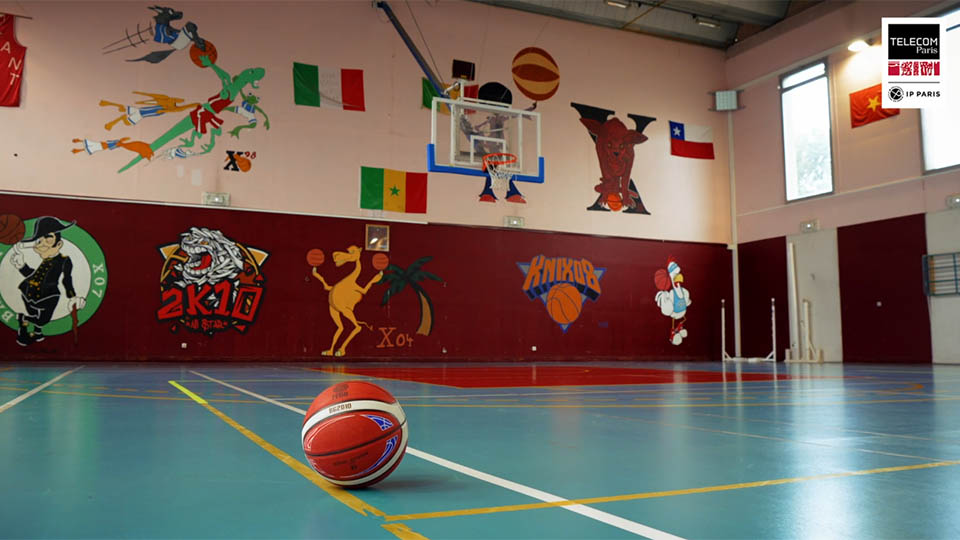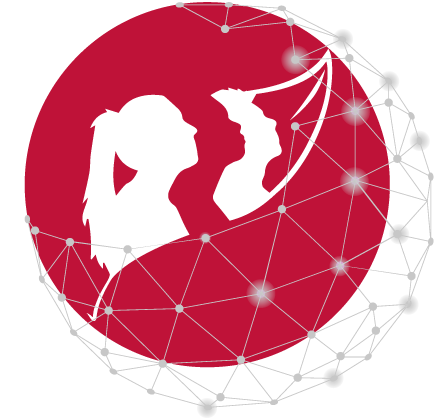Together, let’s make sport a priority and forge exceptional engineers.
A healthy body is essential for a lively and productive mind. A healthy engineer is more likely to be creative, make informed decisions and maintain high productivity while meeting the challenges of the modern world with skill, resilience and determination.
Contact : Marion Schilling – @ue_sport_telcomparis (Instagram)

Lauren, Maëliss, Myriam, Sacha and Sernin are students and talk about the benefits of sports teaching at Télécom Paris.
What skills are developed in Sport courses?
Sport is an excellent vehicle for developing cross-disciplinary skills that are directly applicable to the engineering
For example:
- Teamwork: Just as in an engineering project, team sport requires close cooperation, effective communication and mutual understanding between members. These skills are crucial for working in diverse project groups, where collaboration is essential to achieve common goals.
- Leadership: Sport offers natural opportunities to develop leadership skills. From captaincy to coordination, leadership qualities are constantly called upon and reinforced, enabling students to take the initiative and lead teams in technical and professional contexts.
- Stress management and resilience: The physical and mental challenges encountered in sport teach students to manage stress, show resilience and persevere in the face of difficulties. These qualities are essential for an engineer, who is often confronted with high-pressure situations and complex obstacles.
- Ambition: Sport encourages ambition to achieve and exceed goals. This same ambition is required to innovate, solve complex problems and excel in competitive professional environments.
- Discipline and time management: Regular practice of a sporting activity requires rigorous organisation and effective time management. For engineering students, learning to balance academic demands with sporting activities is an ideal preparation for professional life, where ‘juggling’ multiple tasks and responsibilities is the norm.
Our teaching methods
- Start from an individual’s level and progress together.
- Listening to needs and objectives.
- Heterogeneous groups, but different teaching methods.
- Diversification of teaching situations adapted to different levels.
- We aim for progress before performance.
How it works
The Sport courses are aimed at all first-year engineering students, whatever their level, skills or knowledge. At Télécom Paris, we promote the idea that everyone can enjoy practising and progress according to their own abilities.
Students can sign up for the Sport courses for the year during a registration campaign at the beginning of the school year. They must choose 10 activities from the 24 on offer, ranking them in order of preference.
As far as possible, two activities will be chosen, keeping as far as possible to their first choices. One activity will be practised in the first term and the other in the second term. The aim is to enable students to discover several disciplines over the course of the year and to meet new work groups.
What is required of students enrolled in Sport courses?
Regular attendance is essential. If you want to make significant progress, you need to keep up the pace of your work. What’s more, regular attendance is a prerequisite for being graded and therefore for obtaining the minimum credit required, set at 13.
Each semester is subject to one credit, i.e. 2 credits for the sports year.
Sports on offer
(Opening of the slot with a minimum of 10 registrations per half-year)
Individual sports:
- Tennis
- Table tennis
- Badminton
- Boxing
- Fencing
- Climbing
- Bodybuilding
- Judo
- Crossfit
- Swimming
- Laser run
Team sports:
- Men’s rugby
- Women’s rugby
- Touch rugby
- Volleyball
- Handball
- Basketball
- Spike ball
- Ultimate
Artistic sports:
- Step
- Dance (Break dance)
- Dance (Street dance hall)
- Yoga
- Pilates
- Circus
Testimonials
